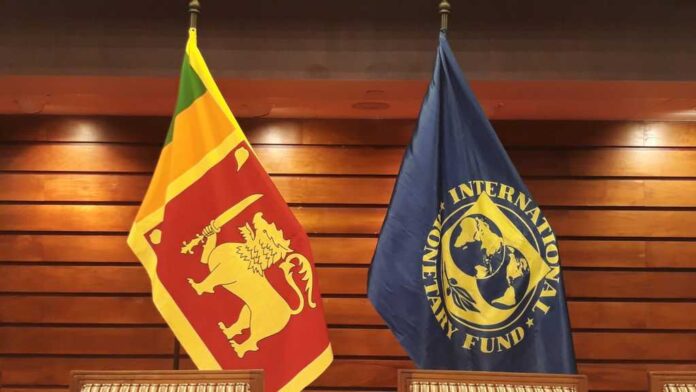By: Staff Writer
October 03, Colombo (LNW): Sri Lanka’s primary dealers in government securities are heavily relying on the central bank’s standing facilities to fund their portfolios, even after being excluded from liquidity auctions, according to an International Monetary Fund (IMF) report.
These dealers, primarily non-bank institutions, have been using the Standing Lending Facility (SLF) extensively to support their holdings of government securities, with such activity accounting for 46% of SLF usage as of April 2023, amounting to approximately 76 billion Sri Lankan rupees (LKR).
The IMF recommends that the Central Bank of Sri Lanka (CBSL) gradually reduce the availability of these monetary instruments to support the development of the LKR bond market.
According to the report, the central bank’s standing facilities should be limited to one-day transactions and not used as long-term funding sources. Ideally, primary dealers should clear their borrowings by selling securities to actual investors rather than continuing to rely on these facilities for extended periods.
In Sri Lanka’s unique market environment, Treasury bills are often offloaded onto dealers after initial auctions, leaving them without sufficient funds to pay for these securities.
This reliance on central bank liquidity contributes to systemic issues, such as balance of payments (BOP) deficits and inflation, as liquidity injected to support dealers, banks, or the government leads to unsustainable financial practices.
State-owned banks, in particular, have historically been the largest users of central bank credit facilities, contributing significantly to the country’s economic crisis.
While some private banks and foreign institutions maintain better reserves and are less reliant on these instruments, the heavy use of central bank credit by state-owned banks highlights the broader challenges facing Sri Lanka’s financial system.
In addition to monetary policy concerns, Sri Lanka is undergoing significant fiscal reform under the IMF’s Extended Fund Facility (EFF).
The government has agreed to introduce new taxes and reform existing tax structures as part of its efforts to achieve fiscal consolidation. One major change involves the introduction of an Imputed Rental Income Tax (IRIT), set to be implemented by 2025.
This tax will apply to rental income from owner-occupied and vacant residential properties, which are currently not subject to direct taxation.
The government plans to establish specific thresholds and a rate schedule for the IRIT under the Inland Revenue Act (IRA), and anti-avoidance measures will be introduced to prevent tax evasion through the use of residential companies and discretionary trusts. The capital gains tax exemption for primary residences will be replaced with a threshold that align
s with the IRIT threshold, while the exemption for listed companies on the stock exchange will also be removed.
In addition, an increase in stamp duties on land leases from 0.1% to 0.2% is under consideration, following a review of affordability and lease amounts.
The government is also exploring the introduction of an electricity usage tax by sharing data between the Ceylon Electricity Board (CEB) and the Inland Revenue Department (IRD).
Collaboration between the Surveyor General, the Government Valuation Department (GVD), and local authorities is expected to improve data collection on properties and taxpayers, which will help in implementing these reforms.
Furthermore, the treatment of residential property transactions under VAT will be aligned with international standards, exempting resale and rental contracts but taxing first-time sales.
Although these tax reforms are expected to increase government revenue, the short-term impact on reducing the need for central government transfers is expected to be minimal, at less than 0.05% of GDP.

